The JCPA supports policies and programs that help move individuals and families out of poverty; that provide work opportunities at wages that allow for self-sufficiency; that provide adequate financial and social service supports; and that attack problems of inadequate education, housing, healthcare, and persistent, fundamental illiteracy. In light of continued federal and state budget deficits we anticipate continued efforts to reduce funding for critical programs. The JCPA reaffirms its commitment to fully funding social programs that are part of an overall commitment and strategy to confront poverty.
The JCPA believes that:
- The federal and state governments have a primary responsibility for alleviating poverty and for ensuring a basic minimally adequate level of support to provide a decent living standard for the poor;
- Attempts to shift responsibility for social service funding either to the private sector or to the states through block grants and funding cuts place an unacceptable burden on many states already facing fiscal crisis;
- Poverty reduction, not just caseload reduction, should be a primary goal of welfare reform, with incentives to states to implement policies that reduce child and adult poverty rates;
- Supporting, strengthening and sustaining public schools is crucial for advancing the primary route for most children into full participation in the nation’s economic, political and social life.
The community relations field should:
- Urge adequate federal and state funding for programs that promote self-sufficiency and reduce poverty;
- Call for improved access and funding for key federal non-TANF programs serving low-income families, including the Food Stamp Program, childcare subsidies through the Child Care Development Block Grant, LIHEAP, Sections 8 and 202 housing, as well as such programs as Head Start, WIC, Welfare and the Social Services Block Grant;
- Work to make sure that the institution of public education is fully funded.
